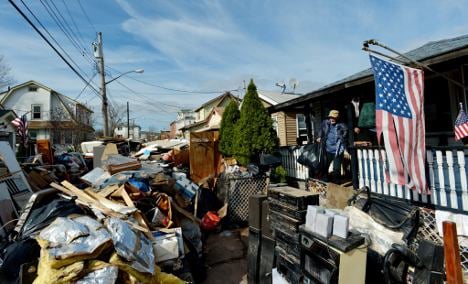“The result for the first three quarters is more than pleasing. Despite Hurricane Sandy, we are very optimistic of realising a profit in the region of €3 billion for 2012,” said chief financial officer Jörg Schneider.
At the beginning of the year, Munich Re had envisaged a full-year profit of around €2.5 billion.
Schneider said it was still difficult to quantify the “substantial” insured losses caused by Sandy.
“The high number of individual losses and the vast extent of the storm make loss estimation very difficult. Based on a provisional estimate characterised by a high degree of uncertainty, we anticipate Munich Re’s share of the losses to be in the mid three-digit million-euro range,” he said.
In the third quarter, Munich Re’s net profit nearly quadrupled, rising to €1.13 billion in the period from July to September from €286 million a year earlier.
Operating profit jumped 70.9 percent to €1.434 billion and gross premium income rose by 8.3 percent to €13.236 billion.
Profits were driven not only by positive underwriting business but “also by a high investment result,” Schneider explained.
Taking the first nine months, net profit amounted to €2.718 billion, compared with just €75 million a year earlier.
Operating profit was up more than nine-fold at €3.738 billion and gross premium income grew by 5.3 percent to €39.133 billion.
AFP/jlb



 Please whitelist us to continue reading.
Please whitelist us to continue reading.
Member comments